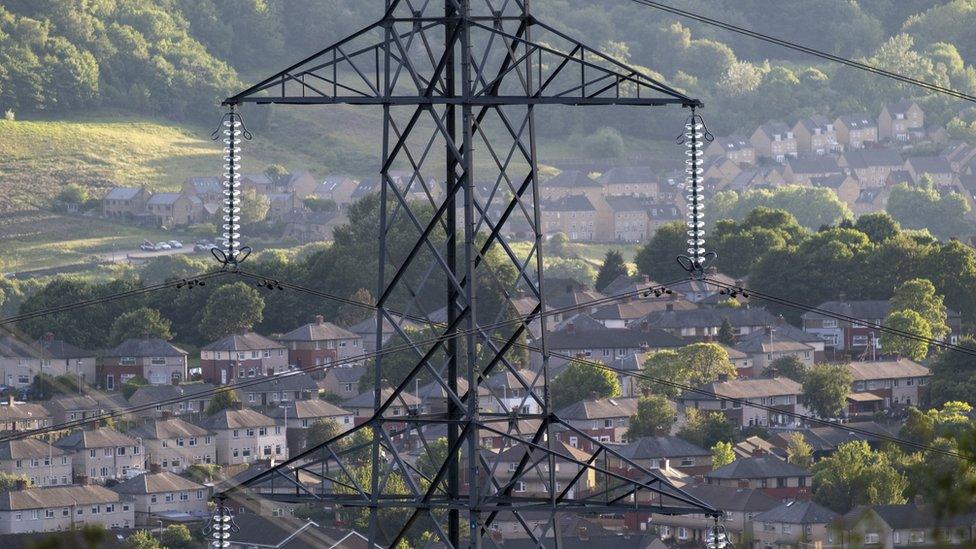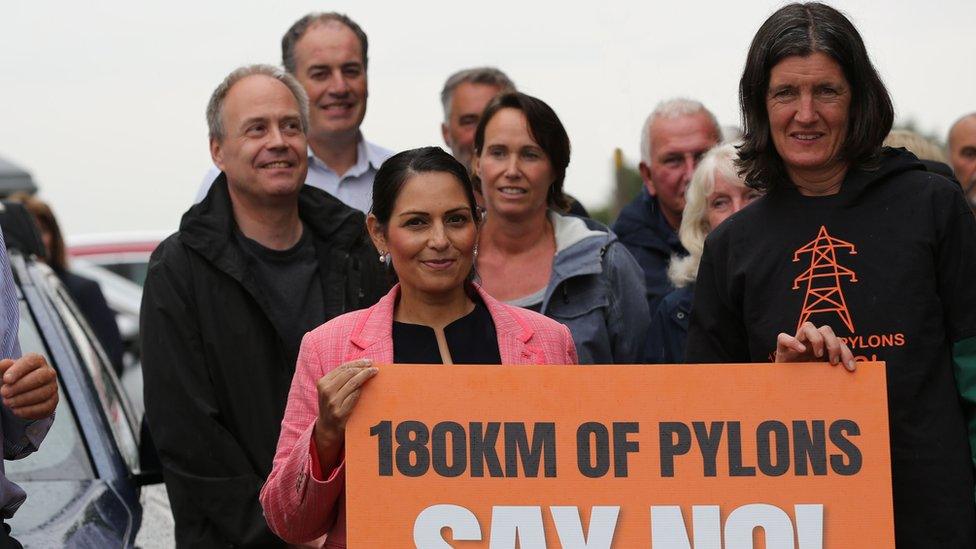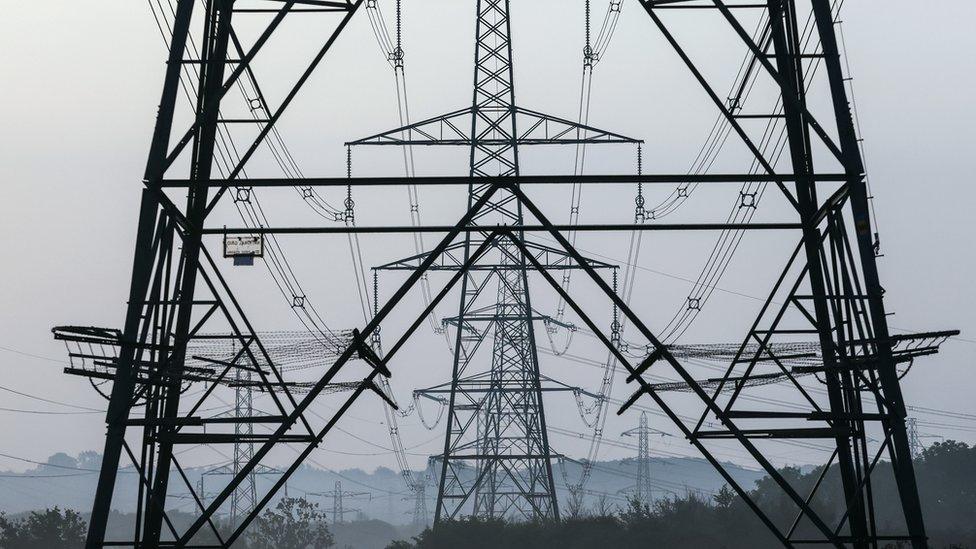Give cash to households in path of new pylons, government urged
- Published
- comments

Households should be given cash if they live in the path of new large electricity pylons, a government-commissioned report says.
The recommendation is among several to speed up the building of new infrastructure in Great Britain to better connect with new renewable energy.
Key is a fast-track planning system to help halve the 12 to 14 years it currently takes to build new lines.
The government has welcomed the report.
Energy Security Secretary Grant Shapps will now consider the recommendations and is expected to present a plan later this year.
However, the construction of new lines could open fresh rifts with Conservative MPs campaigning against planned pylons in their area.
Environment Secretary Therese Coffey and former Home Secretary Dame Priti Patel are among high-profile MPs opposing plans for new lines affecting their constituencies.
The government ordered the review in July last year as part of plans to improve the transmission of renewable energy, including from wind farms and new nuclear stations, to homes and businesses.
The report, by energy industry veteran Nick Winser, said the push to decarbonise was being held back by the slow pace of new pylon projects.
It has recommended a streamlined planning process as part of plans to reduce the time it takes to around seven years, and closer alignment between planning rules in Scotland and the separate system for England and Wales.
It said people living near transmission pylons, the larger lines that connect electricity from where it is generated to regional substations, should get lump sum payments from operators.
The report does not recommend specific levels of compensation or qualification criteria. It says a further consultation may be needed to work out a formula, which would need to be approved by the energy watchdog Ofgem.
'Pay off communities'
It also supported community payments for areas where new "visible infrastructure", including substations, is built, to pay for local programmes such as energy efficiency schemes or electric vehicle charging points.
The cost of compensation would be lower than building cables underground, it added, which it said was between five and 10 times more than overhead lines. Offshore cables were even more expensive, it noted.
But Rosie Pearson, founder of the Essex, Suffolk and Norfolk Pylons Action Group, said the idea of community payments was "very worrying".
"It sounds like they might be intending to essentially pay off communities with nominal sums instead of actually getting the right projects," she told the BBC.

Dame Priti Patel recently took part in a protest against proposed pylons in her Essex constituency
The National Grid says it needs five times more power lines to be built in the next seven years than in the past 30, as part of the transition towards greener forms of energy.
Ministers are consulting on new rules for compensation schemes designed to persuade local areas they are "positively benefitting" from living near the new infrastructure.
Currently, these are struck project-by-project, with community compensation schemes paid through consumer bills on a nationwide basis.
The three companies that maintain the transmission grid in Britain - National Grid in England and Wales, and Scottish Power and SSE in Scotland - do not offer payments to households at present.
But the government has signalled it is open to the idea, saying it would prefer a "blended approach" of community and direct payments, where this is supported locally.
It is also exploring whether people living near new onshore wind farms in England could get discounts off their energy bills.
Ministers have backed the current voluntary approach to payments, arguing it is quicker and allows for more flexibility, but are "retaining the option to move to a mandatory approach if necessary".
Some campaign groups have backed a mandatory compensation scheme, arguing it would ensure payments are fairer.
In the Irish Republic, people in rural areas living within 200m of a new overhead line or transmission station qualify for payments of €2,000-30,000 from EirGrid, the state-owned operator, depending on how close they are and the capacity of the line, external.
New pylon schemes have encountered opposition from some Conservative MPs, particularly in East Anglia, where a number of large projects are under way to bring clean power onshore.

Mr Winser told the BBC that frustration with new schemes was "understandable", adding that there was often "very little context provided" on the benefits and trade-offs of new projects.
He added that better nationwide planning, coupled with community benefits, would make new schemes more attractive and ensure local debates on schemes are "far less heated".
Speaking to the BBC Radio 4's Today programme, he said his recommendations would make debates within communities "open and transparent so people will be able to understand why something is being proposed".
His review also called for a government-led publicity campaign on "the need for a grid refresh", along with a review to tackle a shortage of qualified engineers and technicians.
Related topics
- Published31 July 2023

